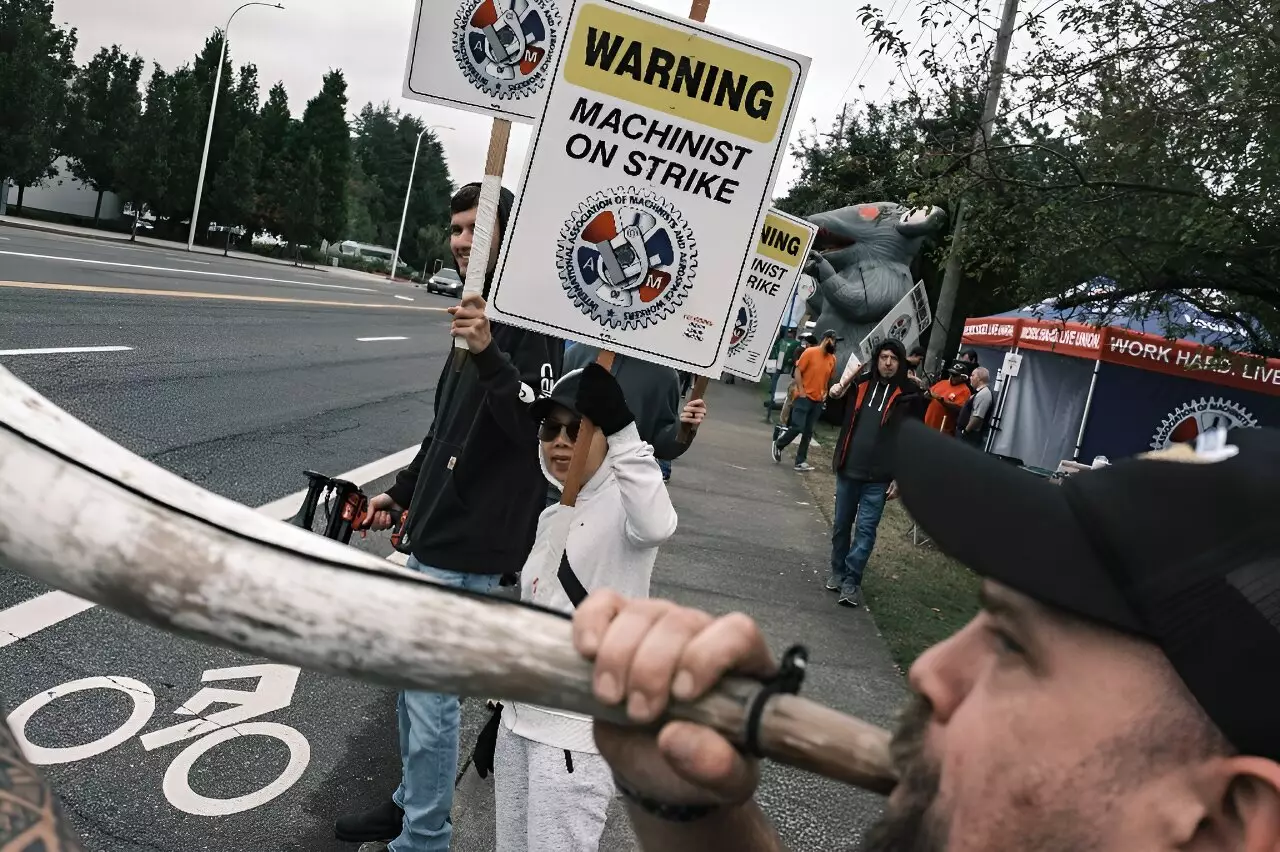In a significant labor dispute, approximately 33,000 employees of Boeing in the United States have engaged in a strike that is now entering a volatile phase. The action commenced on September 13 in the Pacific Northwest, following a resounding rejection of a proposed contract from the company. This bold movement represents not only the workers’ grievances but also highlights the broader issues facing labor negotiations within major corporations.
Recently, the union representing these workers, the International Association of Machinists and Aerospace Workers (IAM), announced that discussions with Boeing had broken down without reaching an agreement. These talks are critical given that the halted negotiations have effectively stalled production at key assembly plants for the popular 737 MAX and 777 aircraft. The IAM expressed its willingness to continue dialogue, emphasizing a desire for potentially mediated discussions, but the lack of scheduled meetings leaves room for uncertainty and prolongs an already tenuous situation.
Boeing, for its part, has indicated a readiness to resume negotiations, asserting its commitment to mend relations with the workforce. The company’s public statements reveal a strategic attempt to present a conciliatory stance, emphasizing intentions to negotiate in good faith. Amid the rising tensions, Boeing put forth a “best and final offer” to the IAM, proposing a 30 percent wage increase for the employees alongside the reinstatement of an annual bonus. However, deadlines for the acceptance of this offer were met with critical scrutiny from the union, which argued that it ultimately fell short of meeting their essential demands.
Pension and Pay Issues as Sticking Points
Central to the discord is the matter of pension benefits. The IAM highlighted ongoing concerns regarding Boeing’s defined benefit plan, which the company remains resistant to unfreeze. This decision is perceived as a significant blow to many workers who rely on these traditional pensions as a crucial component of their long-term financial security. Additionally, disparities regarding wage progression, payment structures, and guaranteed paid time off have surfaced, further complicating efforts to reach a resolution. The IAM’s characterization of the negotiations as lacking substantive engagement on these critical issues points to a fundamental disconnect between employee expectations and corporate policies.
The implications of this strike extend beyond the immediate financial concerns for the workers; they signify a critical juncture in labor relations within the aerospace industry. As the strike continues and negotiations remain fraught, both employees and Boeing are navigating a complex landscape of union solidarity, potential job security risks, and the pressures of public scrutiny. The situation calls into question the effectiveness of corporate bargaining strategies, particularly in industries that rely heavily on skilled labor.
Overall, the Boeing workers’ strike illustrates the mounting frustrations of labor groups seeking not only fair compensation but also acknowledgment of their pivotal role in the company’s success. As the standoff persists, it serves as a stark reminder of the evolving dynamics within labor relations and the necessity for sincere dialogue in resolving conflicts that affect thousands of lives.


Leave a Reply